Attu is about 1,500 nm from Anchorage. It is a volcanic island which is closer to Russia and Siberia than the US mainland. The brutal cold wet winds come from Siberia. This island has the Bering Sea on one side and the Pacific Ocean on the other, whose differences create intense winds and blankets of fog. The island has around 5 - 7 days of clear sky a year. It rains or snows an average of 200 days a year. The poor visibility coupled with crippling wind speeds makes this part of the world unbearable. Speaking of bears, there aren’t any here, nor are there trees.
Most people are not aware of the battle that took place on Attu Island. During WWII it was called the forgotten battle. Previous to the Japanese occupation of Attu island, there were 42 first nation Aleutians (Anagan) people along with an American couple that did weather for the US government. They were all taken to Japan as prisoners of war. At this time, Alaska was a territory, not a state.
When the US and Canadian troops arrived, the Japanese had been on the island for a year and had established tunnels and encampments in the mountains. Our soldiers upon arrival were left to fight the island and its elements, no roads, no infrastructure, and extremely harsh climate. The officials thought this battle would take 3 days and planned for such. The US soldiers sent to Attu had previously trained for desert warfare (not an Arctic island), and they were not at all properly outfitted for this harsh cold climate. To add even more drama to this war, there was not enough provisions, the three-day mission took three weeks.
At the end of the battle, the Japanese soldiers remaining on Attu knew their supply lines were cut off and conducted a Banzai (you die, we die!) attack which was a brutal close face to face battle. In the end most of the Japanese soldiers that were not killed by armed forces, committed seppuku (Samurai honorable death by suicide) with hand grenades.
Out of a force of about 2,500 Japanese soldiers, only 28 survived. Of the 15,000 U. S. troops, 550 died and 1,500 were wounded. Another 1,200 Americans were casualties of Attu's arctic climate, inadequate footgear, contributed to frozen feet, gangrene and trench-foot . The Aleuts that were taken as prisoners of war by the Japanese, were not treated well and most of them perished in Japan.
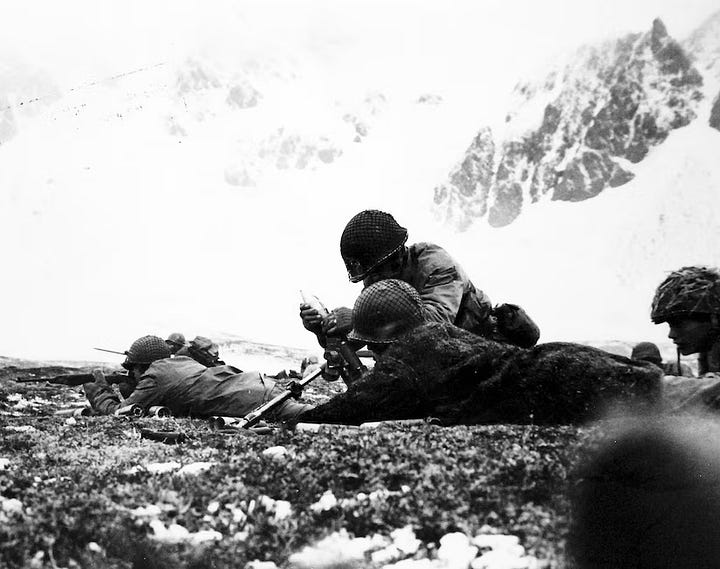
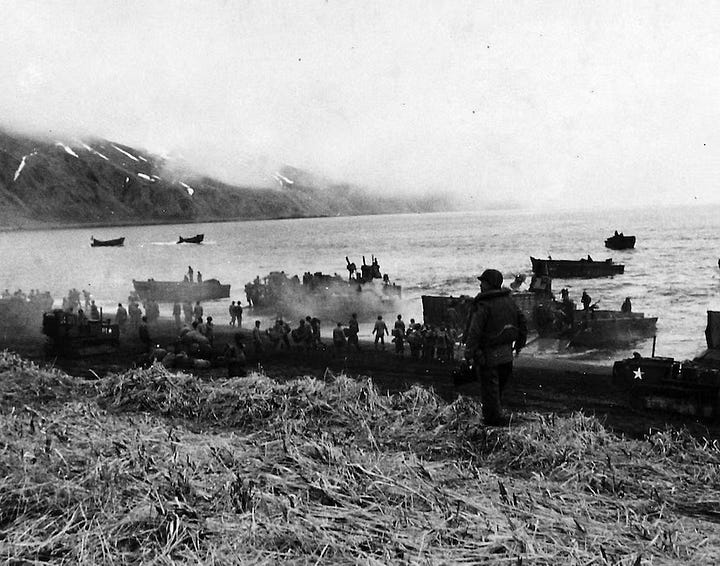
One of the most remarkable things about our journey here, the sailors we connected with. Since we all left during the same ‘weather window’, several sailboats were able to met up in this remote arctic island. It was very comforting to see other people and share a drink on shore while we talked about our trials to show up here. Our friends on SV Swift even made up some yacht club membership cards to commemorate the occasion



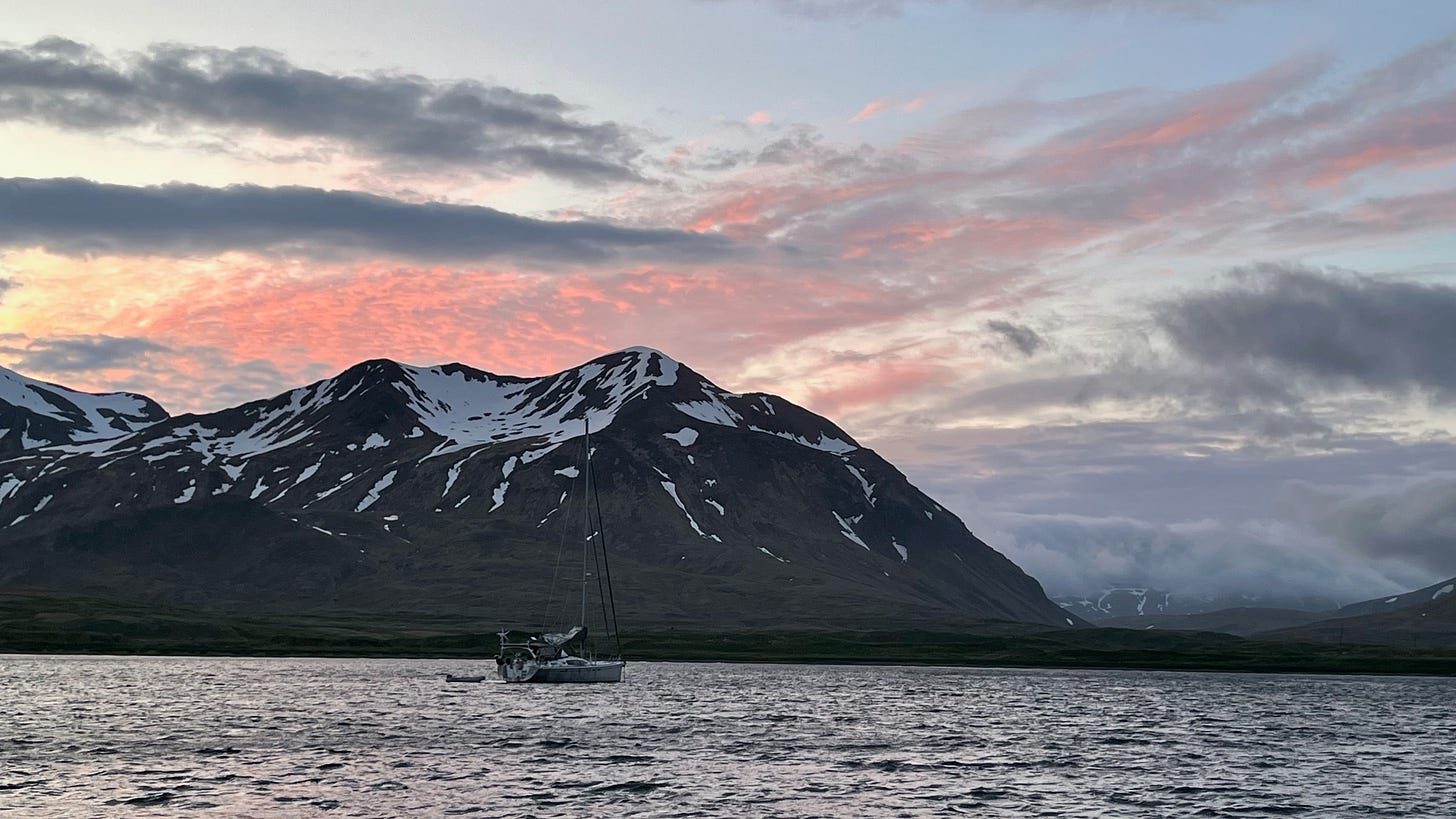

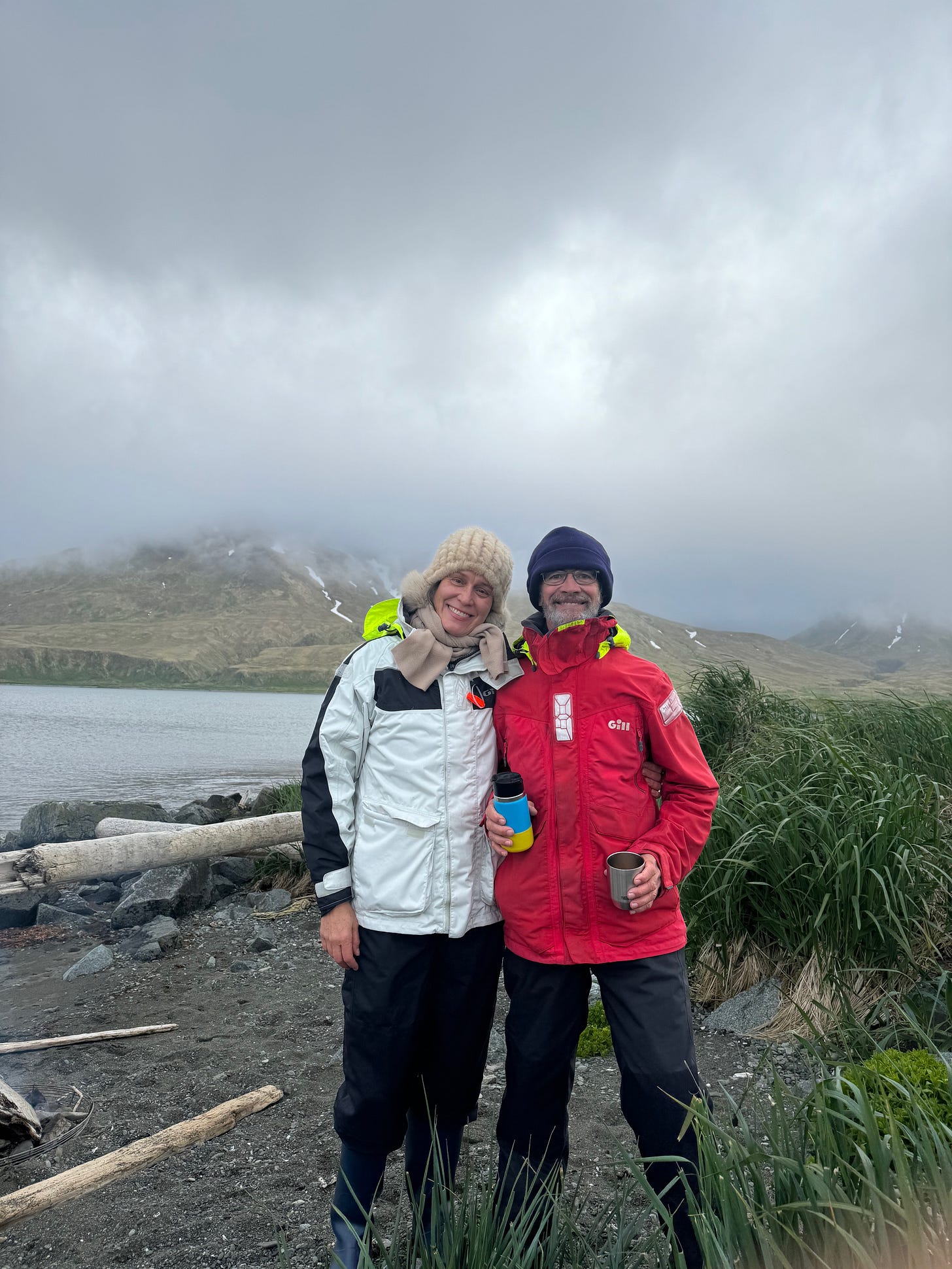


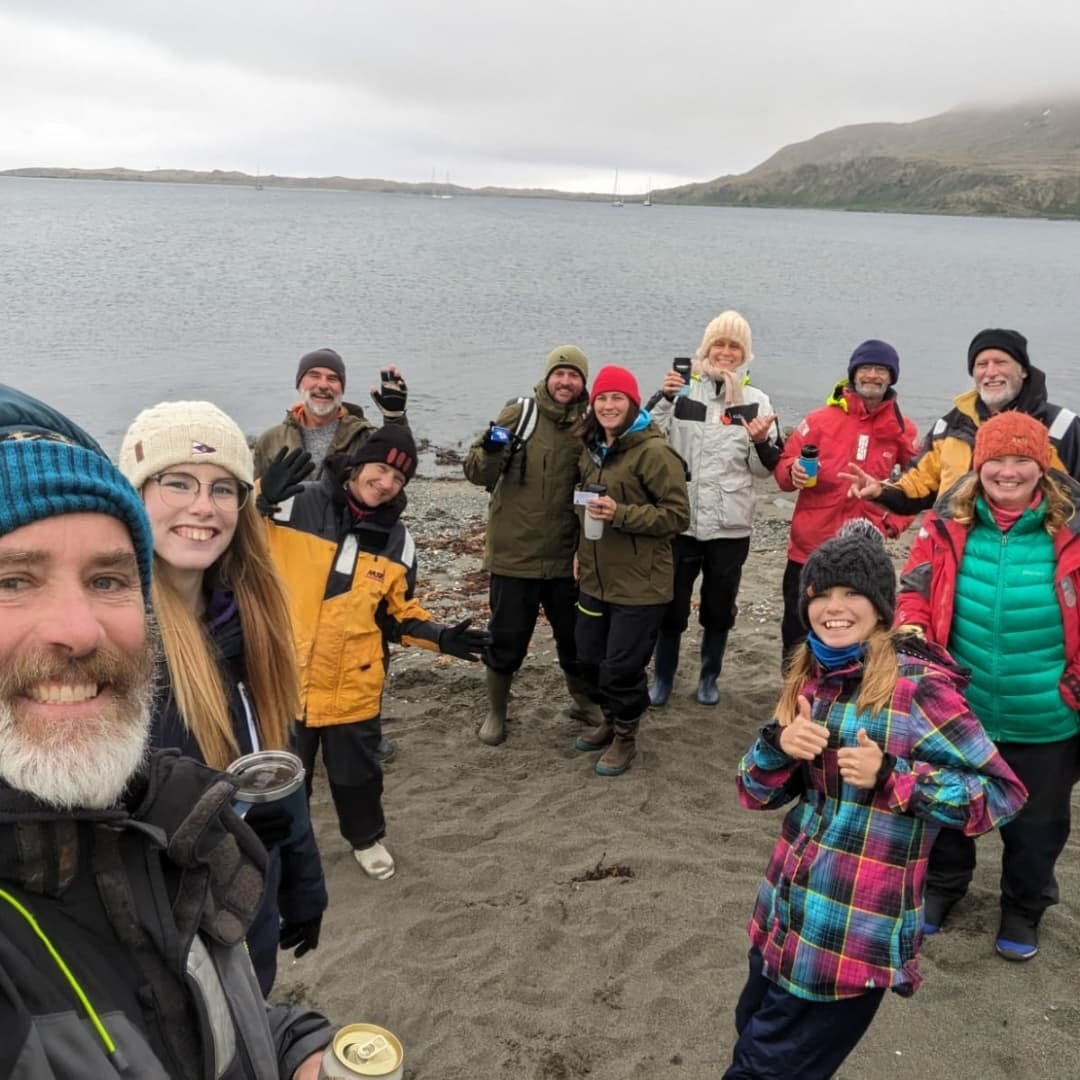


You seem to be enjoying a special time right now. Good for you Gary. Noelle seems very good for you.
YOU MADE IT!!! So glad to have you back on US soil. Miss you guys!